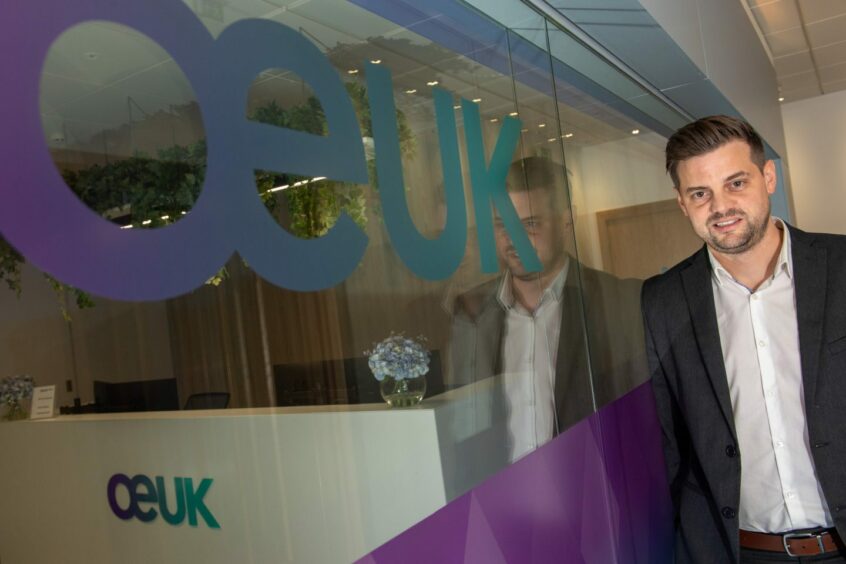
Like the rest of the post-pandemic world, the decommissioning sector has faced a blizzard of change in the past few years.
2021 marked the end of a year in which the UK offshore oil and gas sector saw some recovery after the challenges of the global lockdown and commodity price collapse in 2020.
And this year has been a year like no other, but we’ve come together – operators and supply chain – and pulled through; establishing our key role in the transition to a low-carbon energy mix, and executing safe, innovative, and environmentally sound decommissioning, while adapting to the changing offshore energy landscape.
As one of the world’s most mature oil and gas basins, the North Sea has become an incubator of decommissioning expertise, with UK services, goods, regulation and guidance in high demand.
Newer energies and technologies like wind and carbon capture and storage are also entering the market, and as Offshore Energies UK, our members include organisations with interests in these sectors as well as oil and gas. These energies need the decommissioning services and expertise we’ve developed over the years, not only for removals and dismantling, but for setting up comprehensive decommissioning programmes ahead of construction.
So many new opportunities are on the horizon.
Emissions reduction, repurposing, reusing offshore infrastructure, and supporting the offshore wind industry with designing for decommissioning are all facets of this sector that will provide the community with work for decades. The time is now for teaching the offshore wind sector the lessons that oil and gas decommissioning have learnt so that ‘designing for decommissioning’ can be completed effectively and efficiently sooner rather than later.
And the best is yet to come: 2022 marks the start of a three-to-four-year surge in an activity, where spending is likely to range between £1.7bn and £2bn. OEUK’s latest Decommissioning Insight predicts decommissioning could be worth some £20bn to the supply chain between now and 2031 alone.
This year’s Offshore Decommissioning Conference, sponsored by TAQA, brought together over 450 of the brightest minds in decommissioning, in-person and virtually. The event was a celebration of offshore energy decommissioning and highlighted the work that is still to come.
Through thought-provoking sessions on ideas, opportunities, successes and lessons our community realised that this abundance of work also poses challenges, including bottlenecks in demand for supply chain services and materials. It’s an opportunity that must be properly managed and supported to make sure we can capture as much of it as we can.
The UK decommissioning industry is now looking to the future with purpose, but challenges remain – including attracting and retaining talent.
So, how do we ensure that the brightest and best continue to join the sector?
The good news is, we’re on the case. Multiple decommissioning sector recruitment drives, as well as the OEUK’s Decommissioning Careers Roadshow, continue to support the industry in attracting and retaining the people that we need to get the job done. The OEUK 2022 Offshore Decommissioning Conference also held its first ever student room where 30 students, representing UK universities, were provided a tailored agenda to help encourage them into the industry.
We also know that a career in decommissioning is not fleeting. The decommissioning sector will outlast oil and gas, and will serve new energies like offshore wind for decades to come.
If we are to futureproof and unlock the full potential of this growing industry, we need to be resilient and willing to work cross-sector. We need visibility of upcoming projects, and we need to be transparent about our plans. Projects like OEUK’s Decommissioning Forum and the North Sea Transition Authority’s Pathfinder tool will be vital.
But we also need to get people interested, working with the next generation to show decommissioning is a job like no other – and it’s consistently being done in a cleaner, greener way. We must have in place a strong workforce to capture the full potential of this decommissioning wave.
Offshore decommissioning is not just an oil and gas activity, it is an industry in its own right. We make the North Sea safe for other users and we are learning how we can make the best decisions possible for the benefit of our planet and the people that live on it.
With the right support from government and action from the industry, the UK could make major gains from decommissioning in years to come.
So, let’s spread the word about our sector, the billions of pounds worth of opportunity on the horizon, and the expertise and jobs involved. Let’s innovate new technologies to achieve our shared goal. Let’s work in collaboration, not in competition. Let’s energise decommissioning together.
Recommended for you
